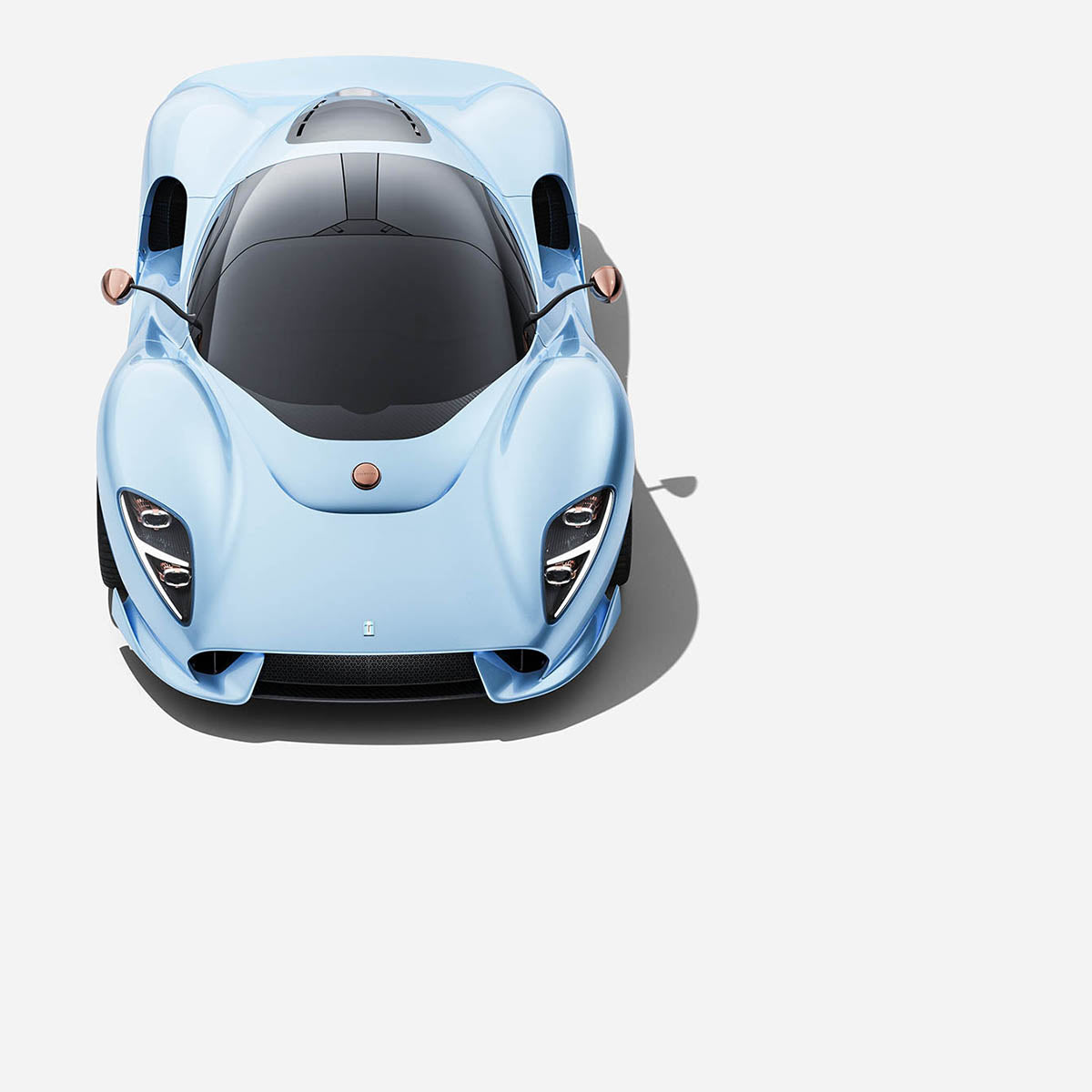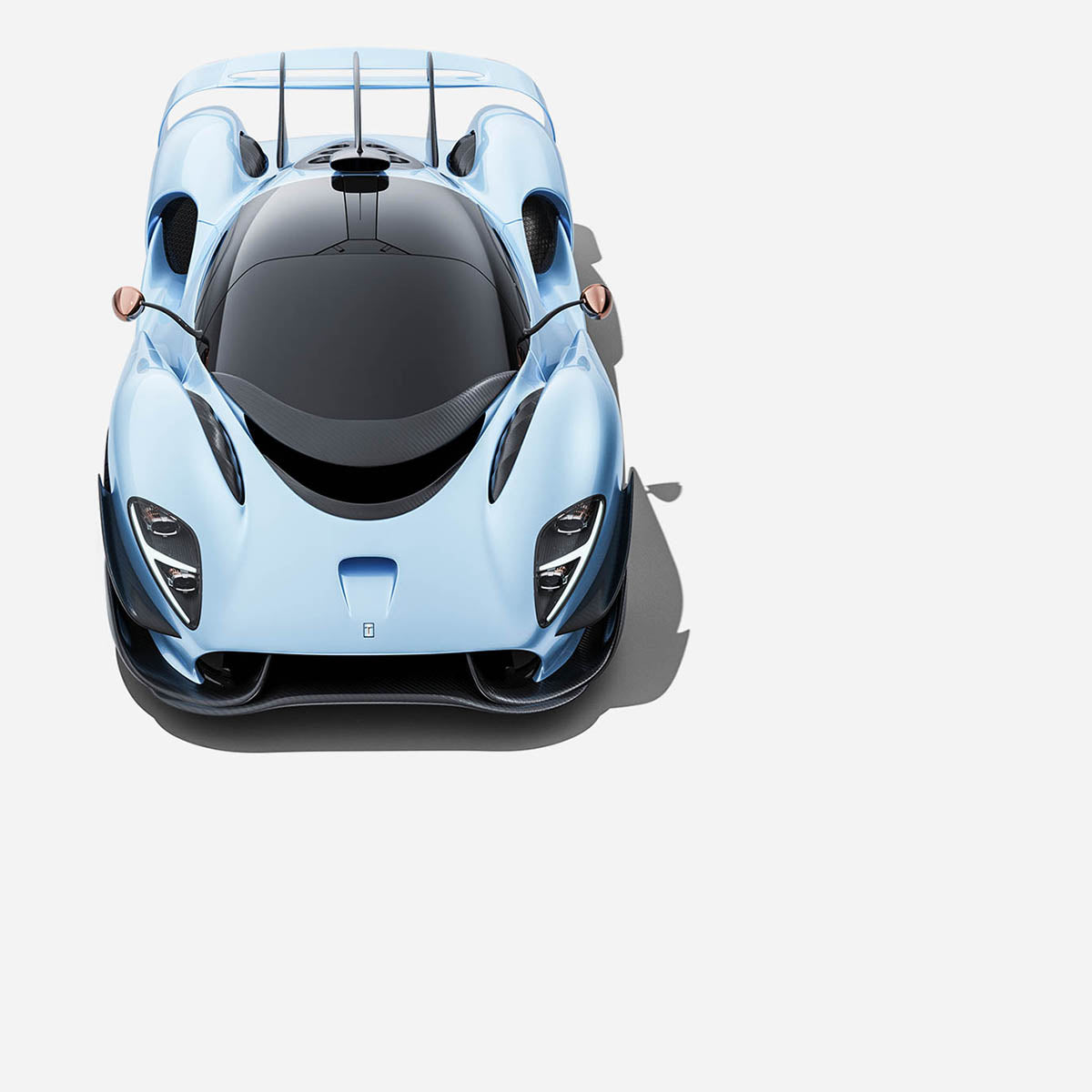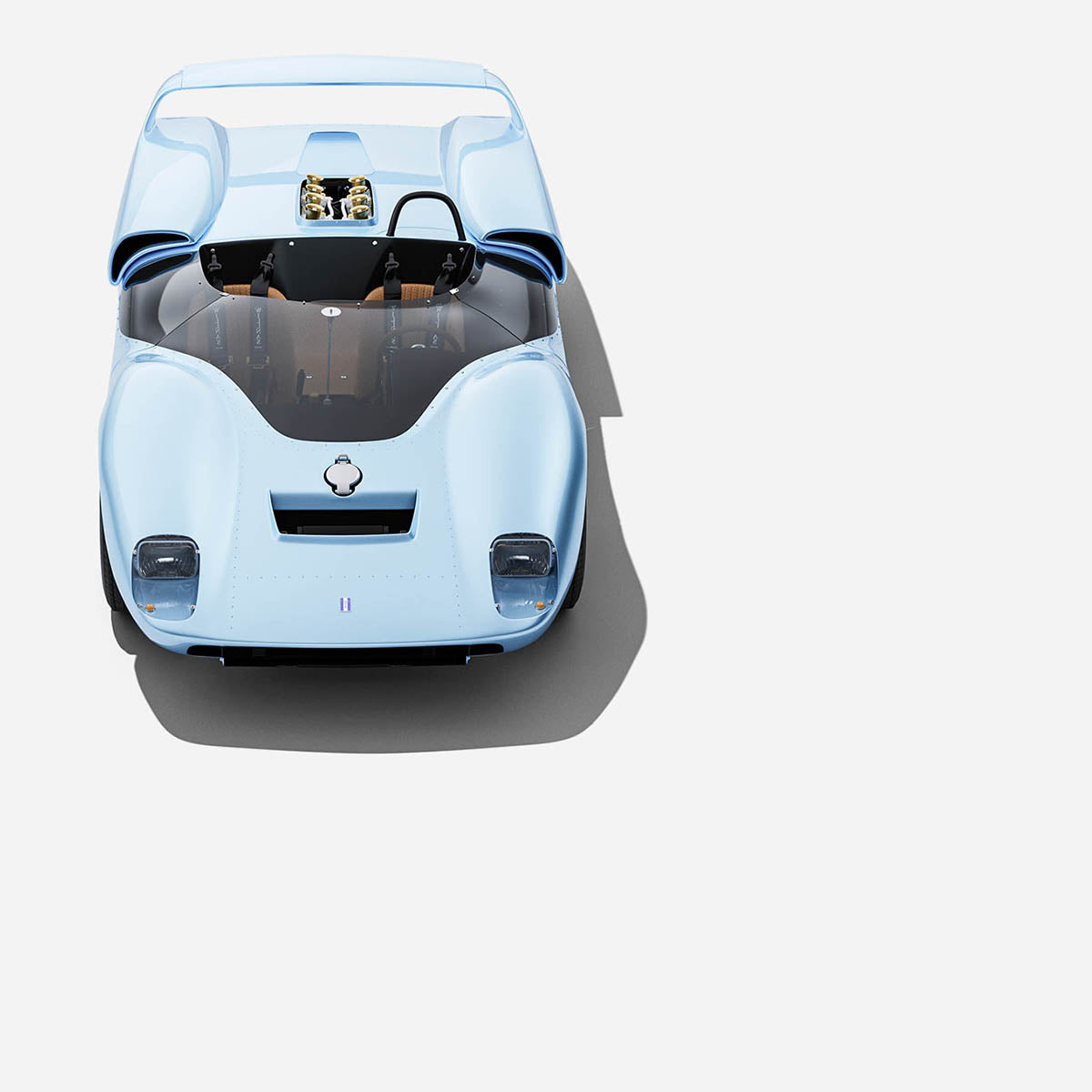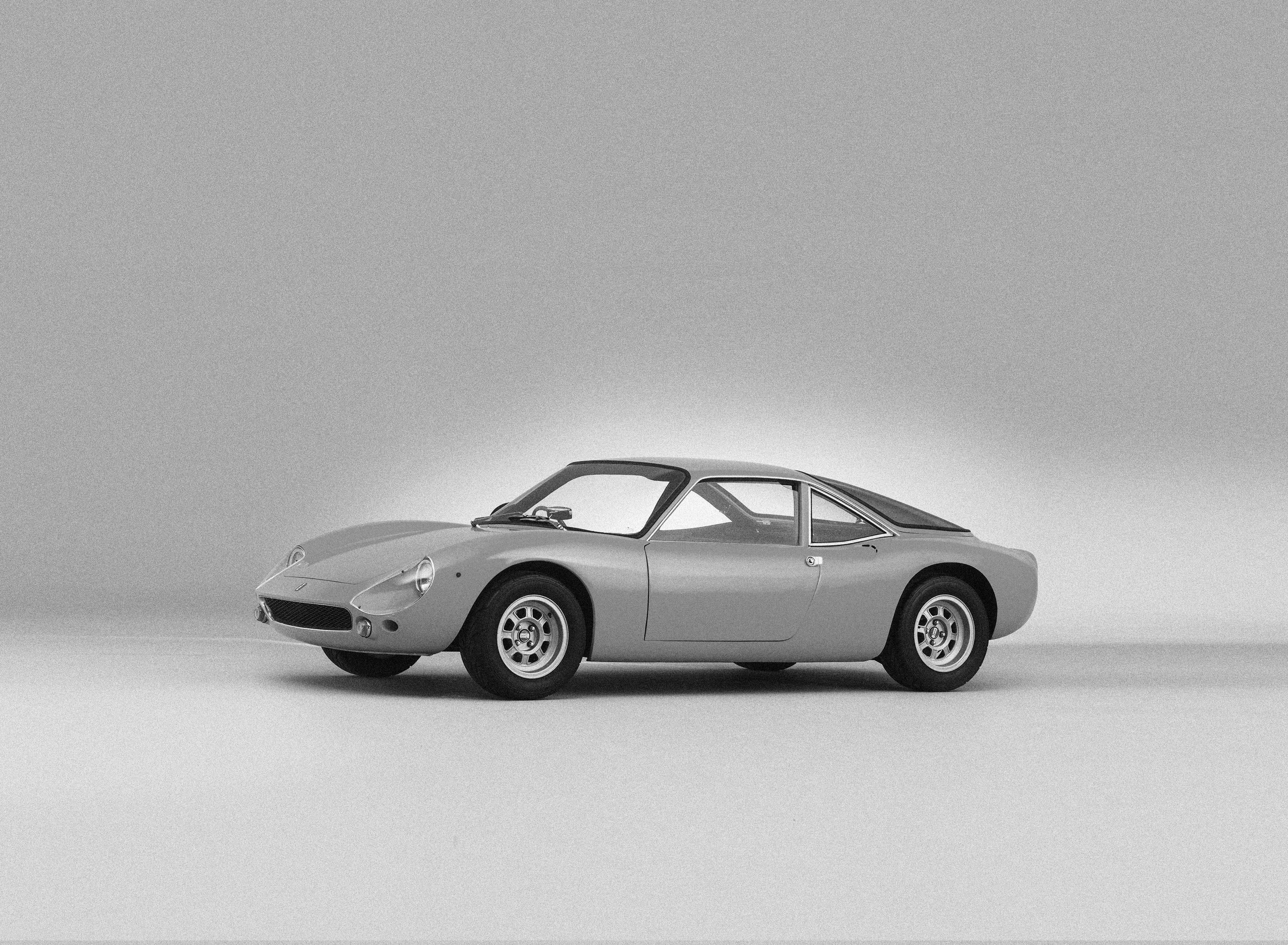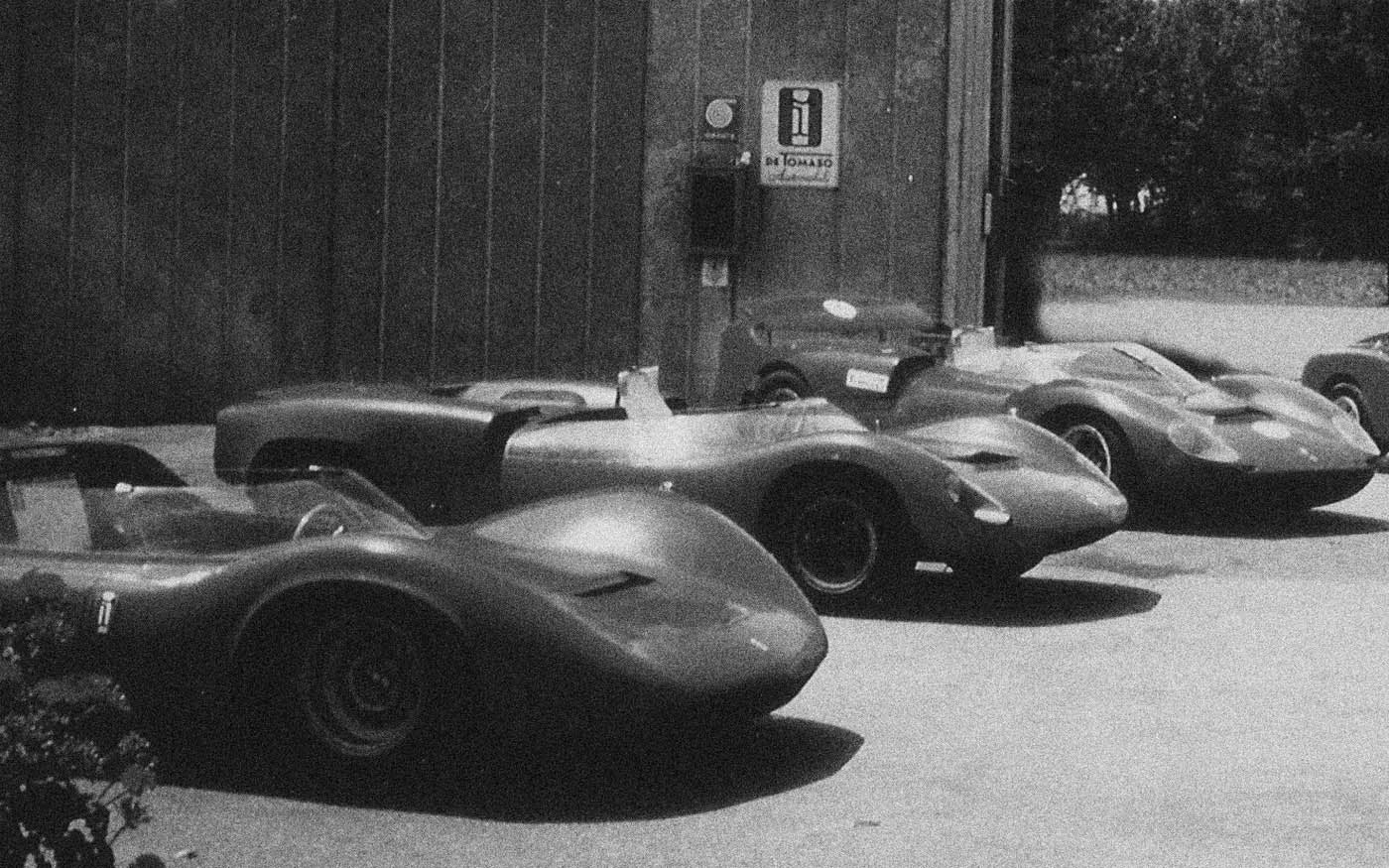The Story
Vallelunga: 1963 — 1968
Back to overviewThe De Tomaso Vallelunga was the first production car made by De Tomaso. Prior to 1963, Alejandro was solely focused on produced racing cars for the Formula Junior, Formula 3, Formula 2, and Formula 1 classes. However, aside from his racing passion, Alejandro was a businessman and he knew that in order to grow his business he needed to move into the road car segment as Enzo Ferrari proved. He initially developed the Vallelunga as a concept car and debuted it as the Turin Motor Show in 1963 in an attempt to find a buyer for the design as he was still not quite ready to produce the car himself, but he found no buyers for the design.
A strong personality, the driven Alejandro would never accept defeat so decided to produce the Vallelunga himself. A big risk at the time, but a decision that would help shape his future and the future of the company. It was at this point that De Tomaso began its evolution from a low volume race-car manufacturer to a true sports car brand.
After deciding to produce the car himself, Alejandro needed to find a coach-builder and decided to use Carrozzeria Ghia, a company he would later purchase outright. De Tomaso committed to a production run of approximately 53 cars.
The Vallelunga chassis was very innovative and sophisticated for its time. It was motorsport inspired and featured a pressed steel backbone with a tubular subframe at the rear and utilized the engine as a stressed member. The car featured a double wishbone suspension with coil springs, front and rear anti-roll bars and four wheel disc brakes.
The Vallelunga featured a 104bhp Ford Cortina engine and in an effort to control costs it utilized a Volkswagen transaxle coupled with Hewland gearing. A true 'superleggera' the car had a dry weight of just 726 kg and featured world-class performance that was on par with cars in much higher price ranges. The Vallelunga's well-known 'spine-chassis' concept was used as the basis for the P70 as well as the next production road car – the De Tomaso Mangusta.
Overview
The Specifications
Engine
- Type: Ford straight four-cylinder with (1498 cc)
- Layout: Mid-engined, longitudinally mounted.
- Aspiration: Naturally Aspirated
- Fuel system: Two valves per cylinder w/ Weber Carburettors
- Power Output: 100hp @ 6,200 rpm / Redline 7,000 rpm
- Power Ratio: 67 bhp / litre
Drivetrain
- Body: Fibre-glass
- Chassis: Pressed steel backbone with rear tubular subframe
- Front suspension:Double wishbones, coil springs over dampers, anti-roll bar
- Rear suspension: Reversed lower wishbones, single top links, twin radius arms, coil springs over dampers, anti-roll bar
- Steering: Rack-and-pinion
- Gearbox: Volkswagen / Hewland 4 speed Manual
- Brakes: Disc (fr/r)
- Drive: Rear-wheel drive
Dimensions
- Weight: 726 kilo / 1,601 lbs
- Length / Width / Height: 3,900 mm (153.5 in) / 1,550 mm (61 in) / 1,200 mm (47.2 in)
- Wheelbase / Track: (fr/r) 2,315 mm (91.1 in) / 1,320 mm (52 in) / 1,350 mm (53.1 in)
- Fuel capacity: 60 Litre (15.9 Gallon)
- Wheels: (fr/r) 6 x 13 / 6.5 x 13
- Tyres: (fr/r) 165/70 – 13 / 185/70 – 13
- Type: Ford straight four-cylinder with (1498 cc)
- Layout: Mid-engined, longitudinally mounted.
- Aspiration: Naturally Aspirated
- Fuel system: Two valves per cylinder w/ Weber Carburettors
- Power Output: 100hp @ 6,200 rpm / Redline 7,000 rpm
- Power Ratio: 67 bhp / litre
- Body: Fibre-glass
- Chassis: Pressed steel backbone with rear tubular subframe
- Front suspension:Double wishbones, coil springs over dampers, anti-roll bar
- Rear suspension: Reversed lower wishbones, single top links, twin radius arms, coil springs over dampers, anti-roll bar
- Steering: Rack-and-pinion
- Gearbox: Volkswagen / Hewland 4 speed Manual
- Brakes: Disc (fr/r)
- Drive: Rear-wheel drive
- Weight: 726 kilo / 1,601 lbs
- Length / Width / Height: 3,900 mm (153.5 in) / 1,550 mm (61 in) / 1,200 mm (47.2 in)
- Wheelbase / Track: (fr/r) 2,315 mm (91.1 in) / 1,320 mm (52 in) / 1,350 mm (53.1 in)
- Fuel capacity: 60 Litre (15.9 Gallon)
- Wheels: (fr/r) 6 x 13 / 6.5 x 13
- Tyres: (fr/r) 165/70 – 13 / 185/70 – 13


